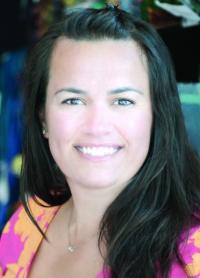January 24, 2018

The new chair of the City Council’s Education Committee, Councillor-At-Large Annissa Essaibi-George, said this week that she wants to discuss options for how the School Committee is constituted and that she expects a hearing will be on the agenda within the next few weeks.
While conceding that the discussion might be interrupted by the budget process in the spring, the councillor said that the hearings offer a chance for the community to discuss the benefits and potential fallbacks of what she sees as three options – keep the current model of an appointed committee; or change the city charter and allow for either a fully elected or a partly elected committee.
“Residents deserve this conversation publicly… and parents and students deserve a seat at the table,” Essaibi-George said in a phone interview with the Reporter on Monday, adding, “I don’t know what the answer is for the School Committee. This is a process that will take and should take a significant amount of time and energy.”
Joining her on the council’s Education panel are councillors Kim Janey, Michael Flaherty, Lydia Edwards, Timothy McCarthy, Matthew O’Malley, and Michelle Wu.
In November 1989, the citizens of Boston approved replacing the existing 13-member elected School Committee with a seven-member mayorally appointed panel, a decision that voters reaffirmed in 1996 with a second referendum vote.
As things stand now, the city charter gives the mayor the power to appoint School Committee members from a list of candidates put together by a 13-member nominating panel composed of parents, teachers, principals, and representatives of business and higher education. Members serve four-year staggered terms. The panel’s functions are to set the agenda for the public schools, establish and monitor the operating budget, and review district policies and practices to support student achievement, according to the BPS website.
Four members of the 2017-2018 panel were appointed by the mayor. Former District 7 city council primary candidate Angelina Camacho of the Boston Parent Organizing Network also serves on the committee.
Essaibi-George, a Dorchester resident now serving her second term on the council, said that she has heard from her constituents across the city that they would like the public school system to be more transparent. The proposed changes to bell times that was met with almost immediate pushback from parents at the end of 2017 have elevated the conversation, she said.
“We ended the calendar year on a very low point with our families,” she said, adding that she had heard from a number of constituents that the proposed changes, particularly for elementary school students, left many feeling uneasy. Some even seriously considered leaving the district, she noted.
“We now need to build trust and repair damage with so many families,” Essaibi-George said. Convening hearings, she said, “is a part of what I can do.” An elected school committee would force members to have to articulate their responsibility to voters, she added. “I need the school committee to be more transparent in how it does its work.
“I see the pros and cons on all sides. This has been a conversation for a very long time with a renewed interest,” she said. “As a policy-maker, I’m really excited to have this conversation.”


